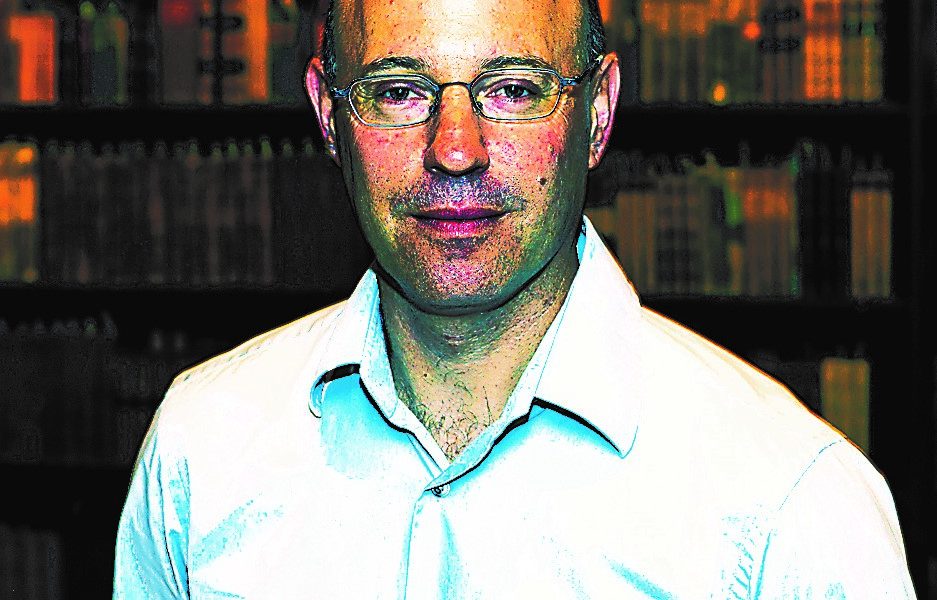News
Murder and memory in Bethlehem a compelling story
When multi award-winning South African author Jonny Steinberg set out to write a story about a man wrongly accused of a heinous crime, he believed he had all the facts. Only later did he understand how fickle human memory really is, and how we all struggle to tell fact from fiction at some point in our lives.

JORDAN MOSHE
“The very act of memory is reconstructive,” Steinberg says. “We select, reconstruct, and tell stories when we remember. A story isn’t reality. When we remember, we reshape the real world into a story.”
This perspective informed the writing of Steinberg’s latest novel, One Day in Bethlehem. He recently shared insight into the book’s creation with journalist Jonathan Ancer in an online discussion hosted by the Jewish Literary Festival.
“Steinberg wrestles with dark and difficult subjects,” said Ancer. “His books have helped us get to grips with some of the fundamental issues facing South Africa, from farm murders, prison gangs, rural life, to the immigrant experience, and more. He makes invisible people visible.”
This is certainly true of his latest work, one concerned with Fusi Mofokeng, Tshokolo Mokoena, and what happened at a trial in South Africa on 2 April 1992.
“I was inspired by an article I read in the Sunday Times in 2011,” recounted Steinberg. “Two men had just walked out of prison. They had been in jail for 19 years for a crime which, by the time they were released, everyone believed they hadn’t committed. Those who committed the crime agreed that these men were innocent.”
Steinberg reached out to Mofokeng, and after extensive interviews, set out to commit the story to paper.
“If you’re going to write intimately about somebody, it helps if they talk a lot,” Steinberg said. “The silent person is incredibly hard to write about. Fusi is a silent person. He was polite and quite concealed when we first met, and he stayed that way.
“I had to work with his silences, and what they really meant. I listened to the quietness of his responses. That’s where his depth really came out.”
Steinberg unravelled a complicated tale.
“Fusi was an ordinary young man living in the rural town of Bethlehem in the Free State,” he said. “He only had a Standard 7 [Grade 9] education, and worked as a cashier. One morning, he received a visit from his brother-in-law from the East Rand of Johannesburg, joined by a group of anxious looking men.
“The men stayed a few hours, and drove off,” said Steinberg. “By evening, they’re back. Fusi’s brother-in-law reveals he is part of an [ANC] self-defence unit, and was on his way to deliver arms to comrades. He says, ‘The police stopped us, we opened fire, and killed one of them, and now I’m hiding.’”
Later that night, security police find the men, and haul them all off to jail. Steinberg says the accepted story was that the men had been brought into town to carry out a robbery.
“Fusi was charged with murder through common purpose, found guilty, and put in prison,” he said. “His entire 19 years in prison he spent putting sweat and blood into proving his innocence. He finished school, studied law, and learned to write and speak English.
“Finally, he was let out on parole, and I later set out to write the story of this innocent man.”
Or so Steinberg thought. After three years of working with Mofokeng, Steinberg was given access to the transcript of the trial at which the accused man had been convicted. Rather than affirm his story, Steinberg says the information Mofokeng shared with him wasn’t only unreliable, but wrong.
“It dawned on me what actually happened to his memory over the years,” said Steinberg. “Mofokeng had taken what was said six years later at the Truth and Reconciliation Commission, all of which had been fabricated just to get people off, and he had transposed that testimony onto the day of the incident.
“That put me in a quandary. I came to believe his story was untrue, and that that he didn’t know it was untrue.”
Steinberg never found out what really happened on that day, but believes there is a very strong possibility that Mofokeng was involved in the murder.
“I put down the book, and didn’t want to write anymore,” he says. “Still, it just sat with me and felt wrong. I had spent years on it, and it was going to waste.”
More than that, Steinberg felt Mofokeng was a remarkable individual in spite of his flawed memory and possible wrongdoing.
“He was extraordinary and unusual,” says Steinberg. “He spent the first two decades of his adult life in prison, and walked out with no adult experience into the township of Bethlehem where there is high unemployment, social problems, and huge alcohol abuse.”
Mofokeng not only survived, but flourished, says Steinberg.
“He fell in love, adopted his new wife’s children, started work as a mechanic, and shot through the ranks. He was an incredibly skilled, decent person, and to spend 20 years in prison and walk out like that is unusual.
“I had a hunch there was a connection between his bad memory and his decency. I said, ‘If I cannot write this story, what am I doing?’ I felt an obligation to him, the story, and my craft.”
Ultimately, Steinberg believes that reality spools across time only with the meaning we attach to it because of memory.
“We always have a purpose in telling a story, and it’s often self-justifying,” he says. “We are dark and complex beings. We hide things from ourselves, and often don’t know the truth of who we really are. Those are the things worth writing about.”